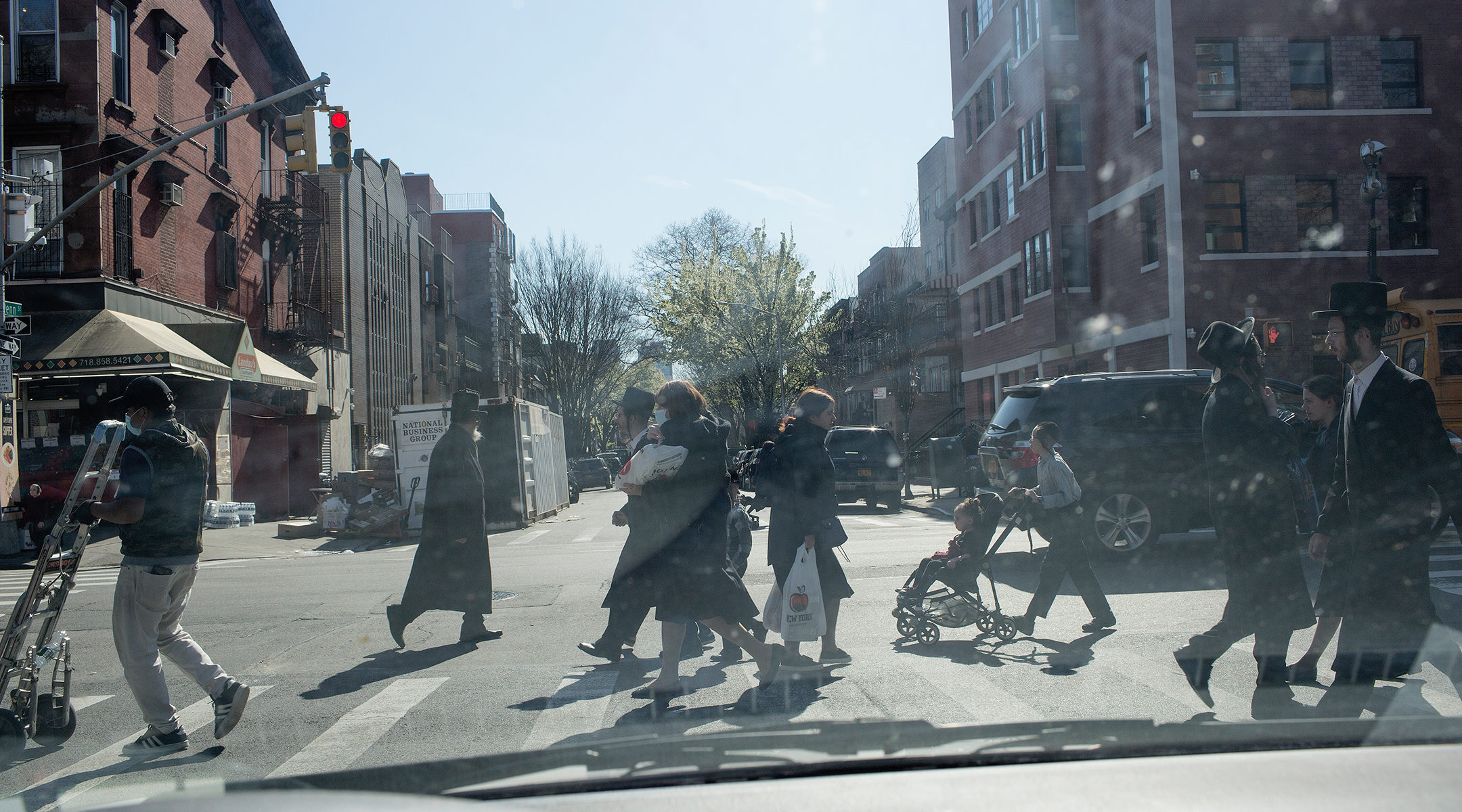NEW YORK (JTA) – Two Hasidic synagogues defended New York Mayor Bill de Blasio from charges of anti-Semitism and called on members of their communities to adhere to government social distancing requirements.
The letters – issued on Thursday by two rival factions of the Satmar Hasidic community in the Williamsburg neighborhood of Brooklyn – offered praise for the mayor. De Blasio, who has long enjoyed a close relationship with the Hasidic community, was widely criticized this week for singling out “the Jewish community” after a large Hasidic funeral drew a crowd of thousands into the street. Both letters denounced de Blasio’s critics, in particular those who accused the mayor of anti-Semitism, while calling on their communities to work with law enforcement to avoid behavior that endangers lives.
“Our positions remain consistent,” Mayer Rispler, a leader of the Aronim faction, wrote. “We do not condone any behavior that puts people at risk and pledge to keep working alongside the brave men and women of the NYPD in addressing and eliminating any such occurrences.”
“At the same time, we want to disavow the attacks and derogatory language against our mayor, from people from outside the community and from reckless people among us,” Shaul Perlstein, a leader of the Zaloynim faction, wrote in a letter that was shared widely on Twitter. “We call upon the entire community not to be drawn into their views and not be influenced by those big-mouths on hotlines and the internet who are trying to kindle a fire of hate, it shall never happen.”
The letters come at the end of a week in which the mayor has come under withering criticism from the Jewish community over his tweet. Dozens of Jewish leaders signed a letter this week asking for a meeting, saying the mayor engaged in “scapegoating” the Jewish community, playing into anti-Semitic tropes.
But the letters from the Satmar synagogues served as a public reminder that the community’s leadership remained in lockstep with the mayor.
“The close relationship between Mr. De Blasio and our community go back close to two decades, during which time we have come to know, respect and appreciate his understanding and sensitivity to the unique needs of our community,” Rispler wrote. “We consider him a dear friend and pray for his success.”
JTA has documented Jewish history in real-time for over a century. Keep our journalism strong by joining us in supporting independent, award-winning reporting.






